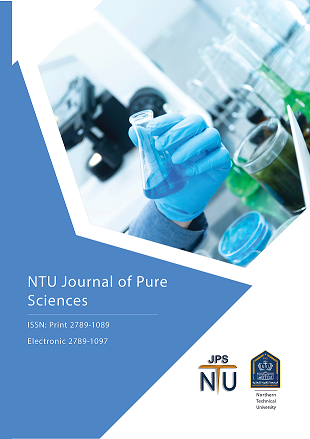Effect of H. pylori infection on incidence of hyperthyroidism and hypothyroidism in men and women
DOI:
https://doi.org/10.56286/ntujps.v2i3.312Keywords:
H.pylori , Hyperthyroidism, hypothyroidism, EuthyroidismAbstract
There are some controversial studies that associate Helicobacter pylori infection with autoimmune thyroid disease (AITD). The study aimed to evaluate the effect of H. pylori infection on the development of thyroid diseases, so the study was carried out on 90 patients (male and female) with thyroid disorders, and 50 healthy individuals as a control group. Venous blood samples were drawn from all participants, and serum was obtained after centrifugation and kept in labeled Eppendorf tubes then stored at -20°C till used in biochemical and immunological assays including estimation of anti-H. pylori IgG and Anti-cag-A IgG titer by ELISA method, while assessment of Tri-iodothyronine (T3), tetra iodothyroixine (T4), and thyroid Stimulating Hormone (TSH) by (e601 Cobas) automated immunoassay analyzer. The result recorded a significant decrease in TSH concentration (P < 0.05) in the hyperthyroidism group and a significant increase in TSH concentration (P < 0.05) in hypothyroidism patients whereas the concentration of T4 and T3 recorded a significant increase (P < 0.05) in hyperthyroidism group while a significant decrease in T4 and T3 concentrations (P < 0.05) occur in hypothyroidism patients when compared with control (Euthyroidism) group. On the other hand, there is a significant increase (p <0.05)in the titer of H.pylori IgG and the titer of anti-cag IgG in both females and males of hyperthyroidism and hypothyroidism groups in comparison to control Euthyroidism group. The highest prevalence of H.pylori IgG positive ( 74.5%) occurs hypothyroidism group followed by (71.4%) for hyperthyroidism patients while (56%) occurs in the control group (Euthyroidism).
In conclusion, our findings indicated that H.pylori infection is more susceptible in thyroid disorder patients, and anti –Helicobacter pylori IgG antibodies distribution among hypothyroidism is greater than in other groups.
Downloads
Downloads
Published
Issue
Section
License
This work is licensed under a Creative Commons Attribution 4.0 International License (CC BY 4.0), which permits unrestricted use, distribution, and reproduction in any medium, provided the original work is properly cited.









